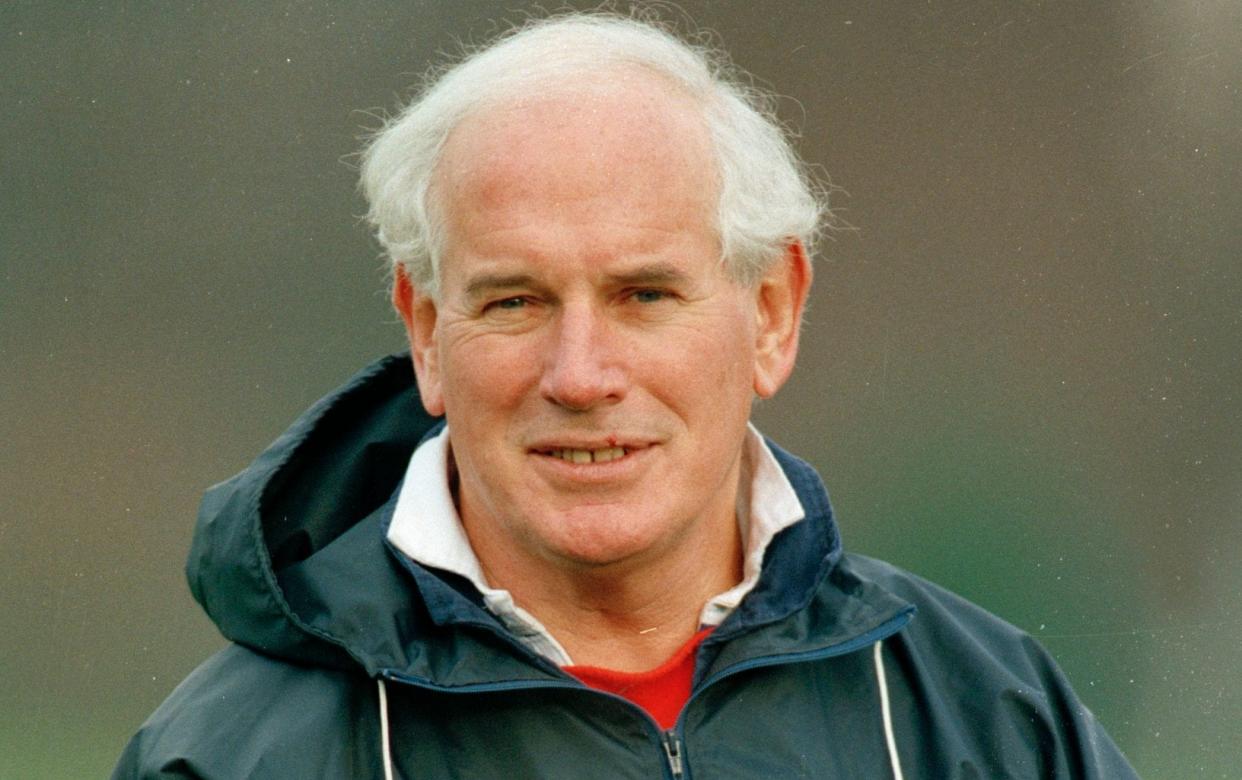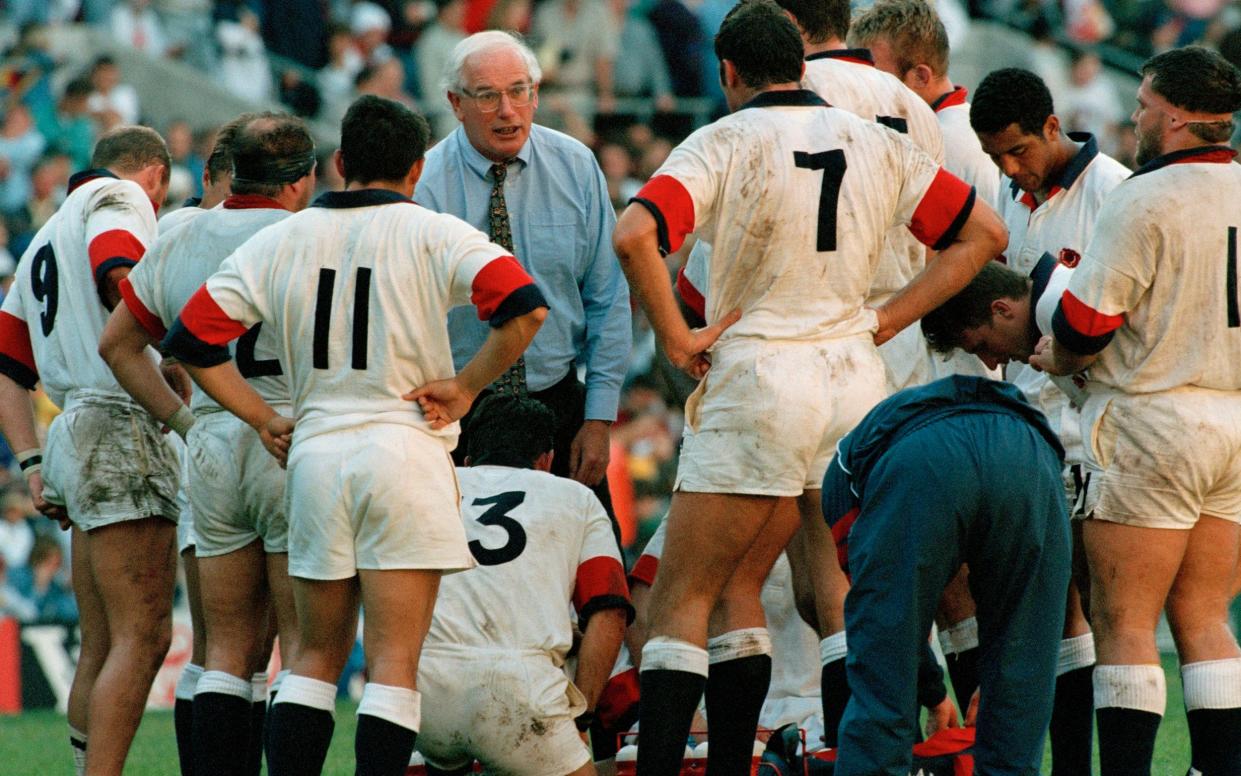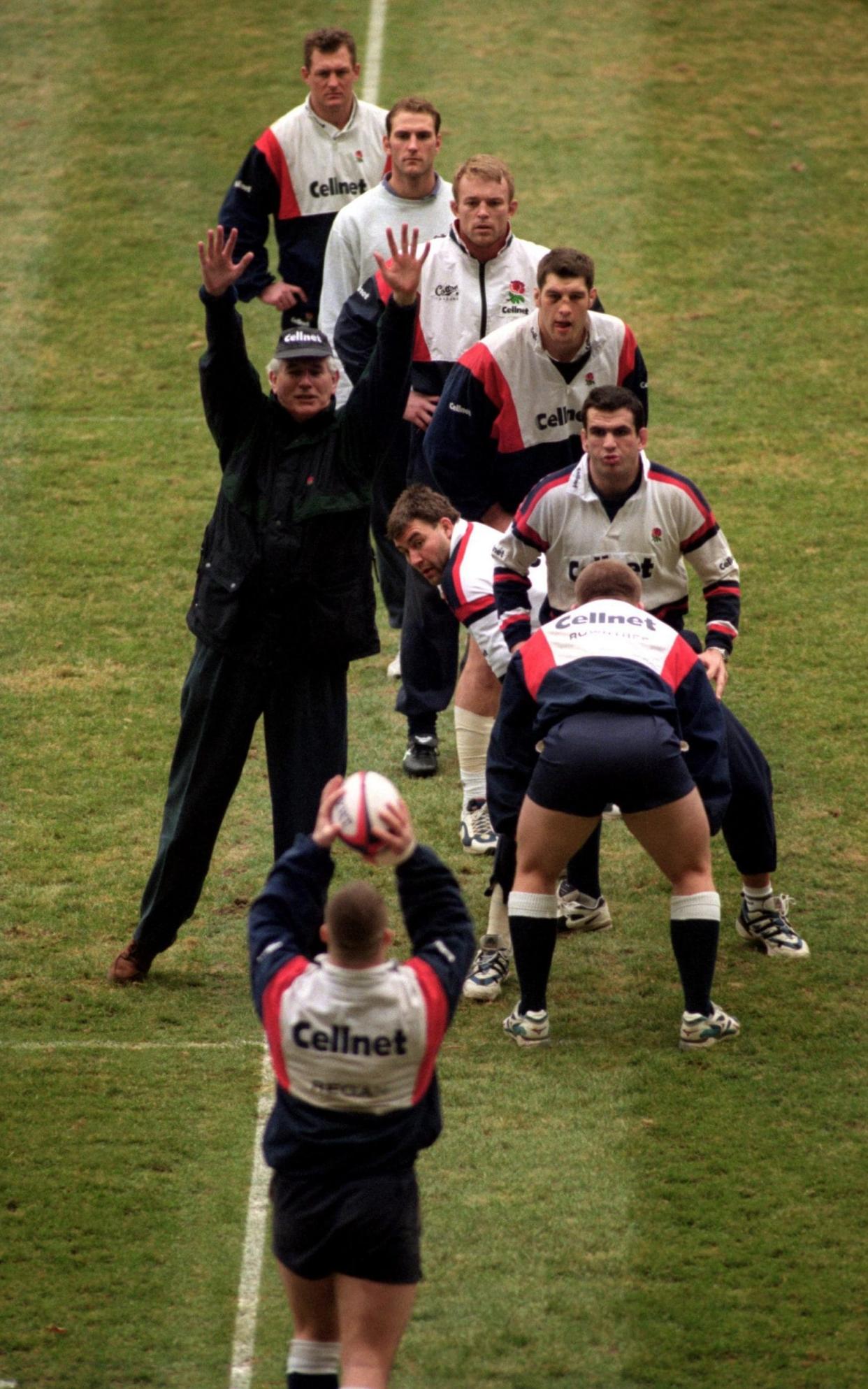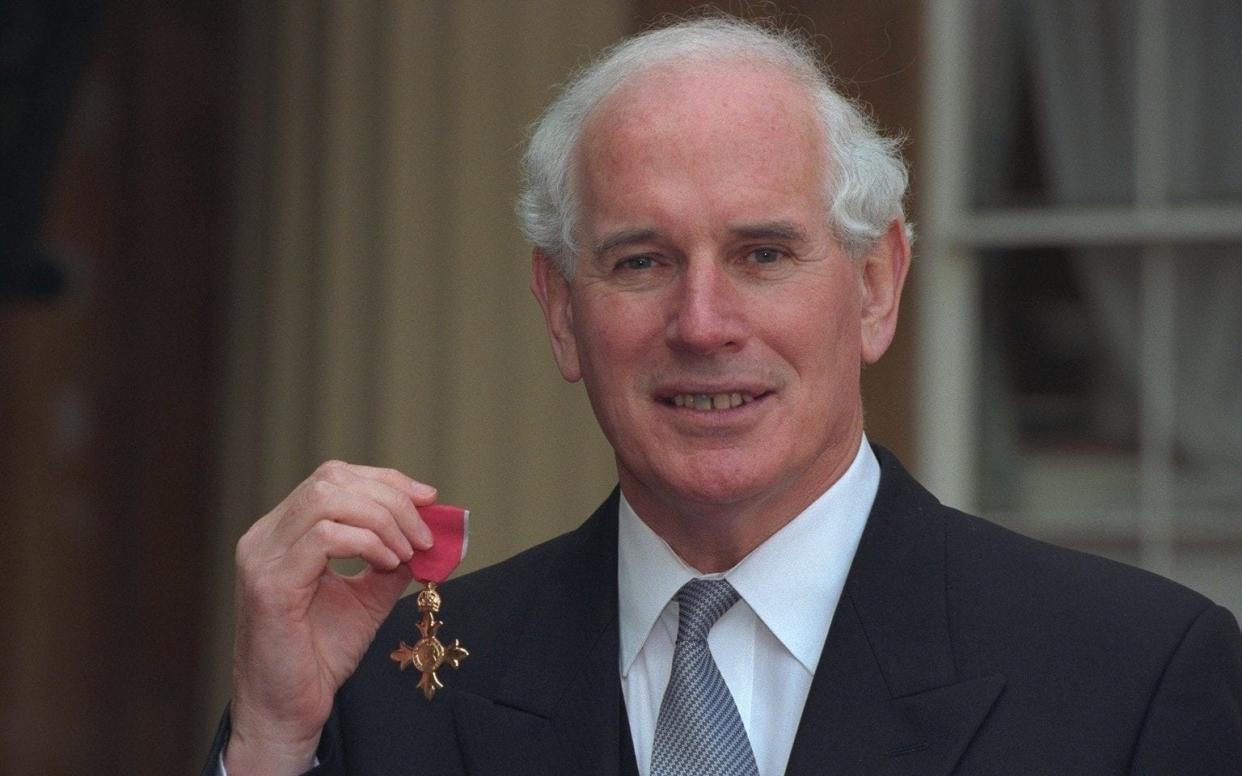Jack Rowell, rugby coach who led Bath to domestic supremacy and England to the grand slam – obituary

Jack Rowell, who has died aged 87, was one of the most successful rugby union coaches of the second half of the last century; first at Bath, where he led the club to five league titles and eight cup final triumphs between 1978 and 1994, and then with England from 1994 to 1997, a period in which the side notched up 21 Test wins in 29 matches and delivered a Five Nations grand slam.
At Bath in the pre-professional era he transformed a club that had rarely seen success into an unstoppable domestic force. Over 16 years at the Recreation Ground his 13 trophies included league and cup doubles on three occasions, in 1989, 1992 and 1994.
Rowell’s demanding leadership also benefited England under the captaincy of Will Carling as he harnessed players of the calibre of Rob Andrew, Jeremy Guscott and Rory Underwood to make the team into a more exciting force than it had been for some time.
A formidable and intimidating presence, not least due to his 6ft 7in frame, he accepted nothing other than exceptionally high standards and would cast aside anyone who failed to share his ambitious, win-at-all costs attitude. But he was also a forward thinker who inspired great loyalty and admiration among those who were willing to accept his rigorous criticism, making him, as the former Scotland player turned journalist Chris Read once said, “an intimidating bully to some, a compassionate counsellor to others”.
Outside rugby he employed those considerable management skills to great effect in a career as a globetrotting businessman in the food industry.
Jack Rowell was born in Hartlepool in November 1936 to Edwin and his wife, Monica (née Day). Educated at West Hartlepool Grammar School, he went to St Edmund Hall, Oxford, where he sustained a serious neck injury playing rugby in his first week there and was told that he should stop playing for good.
Concentrating instead on becoming a chartered accountant and beginning his working life with Procter & Gamble, he eventually missed rugby so much that he ignored the medical advice and took it up again in his late 20s, appearing as a lock forward for Hartlepool, Middlesbrough and then Gosforth and skippering each side in succession.
He switched to coaching with Gosforth in 1972, when he was in his mid-30s, taking them to John Player Cup final wins at Twickenham in 1976 and 1977 before moving to the west of England to become finance director of Lucas Food Ingredients. Soon afterwards, despite some initial hesitation from Bath, he was appointed as their coach.

One of the keys to Rowell’s success there was what he called his state of “divine discontent” – a constant striving for perfection that could render him deeply frustrated at performances even if they had delivered comfortable wins. Committed to testing players to their limit in brutal training sessions, and by embracing tough fixtures against big clubs in Wales and France, he also placed a relentless focus on improving players’ core skills in the line-out, the scrum and broken play, a meticulous approach now adopted by all top-level rugby teams.
It took just four years to deliver results with a first John Player Cup win in 1984, after which there were further victories in that competition in 1985, 1986 and 1987, and then in the successor Pilkington Cup in 1989, 1990, 1992 and 1994. There were league titles in 1989, 1991, 1992, 1993 and 1994.
The teams that Rowell built and rebuilt at Bath featured the likes of Stuart Barnes, Guscott, Mike Catt, Ben Clarke, Victor Obugo and Phil de Glanville, among others, and stood in a class of their own across that decade, dominating English domestic rugby in a way that had never been seen before.

When the England coach Geoff Cooke stood down in 1994, Rowell was the natural choice as his successor, not least because a sizable part of the squad was made up of Bath players. Promising to brighten up Cooke’s sometimes drab, forward-dominated outlook, he encouraged Carling and his colleagues to think more in terms of running rugby, and the results were occasionally exciting, at least in relation to England’s long tradition of safety-first rugby.
In Rowell’s second Five Nations campaign, in 1995, England won all their games to deliver the grand slam before going on later that year to defeat the reigning champions Australia 25-22 in a tense World Cup quarter-final in South Africa that was secured with a last-ditch Andrew drop-goal. Although they were then crushed by New Zealand and a marauding Jonah Lomu in the semi-final, they went on to beat everyone except France in the 1996 Five Nations to take the title again.
In 1997, after England had won the Triple Crown but finished as Five Nations runners-up, Rowell rejected an offer to extend his contract in order to give full attention to his other career, having combined his role as chief executive of the Dalgety food conglomerate with his part-time coaching at England. “The chairman did not think it was good for the shareholders if they kept reading about me in the sports pages,” he said. In 1998 he was appointed OBE for services to rugby.

After only a year out, however, Rowell returned to the game as a non-executive director at Bristol, two years later becoming the club’s managing director, dealing with player contracts and attending Premier Rugby board meetings.
In 2002 he accepted a two-year contract to be director of rugby back at Bath, who had by then lost their previous invincibility. In his first season the club narrowly avoided relegation, but the following year he worked his magic again, and Bath topped the Premiership table, although they lost to Wasps in the play-off final. Later he was Bath’s president from 2007 to 2009 and chair of trustees from 2010 to 2014.
In his later years, after a varied business life that encompassed a spell as chief executive of Golden Wonder (1988-92), where he was partly responsible for spotting the potential of Pot Noodles, Rowell held directorships or chairmanships at various companies, notably Lyon Seafoods, Dolphin Computer Services and Marlar Bennetts International. He was also a member of the board of Sport England 2006 to 2009 and a council member of the Prince’s Trust from 2008 to 2013.
Jack Rowell married Susan (née Cooper) in 1969 and they had two sons.
Jack Rowell, born November 1936, died July 1 2024


